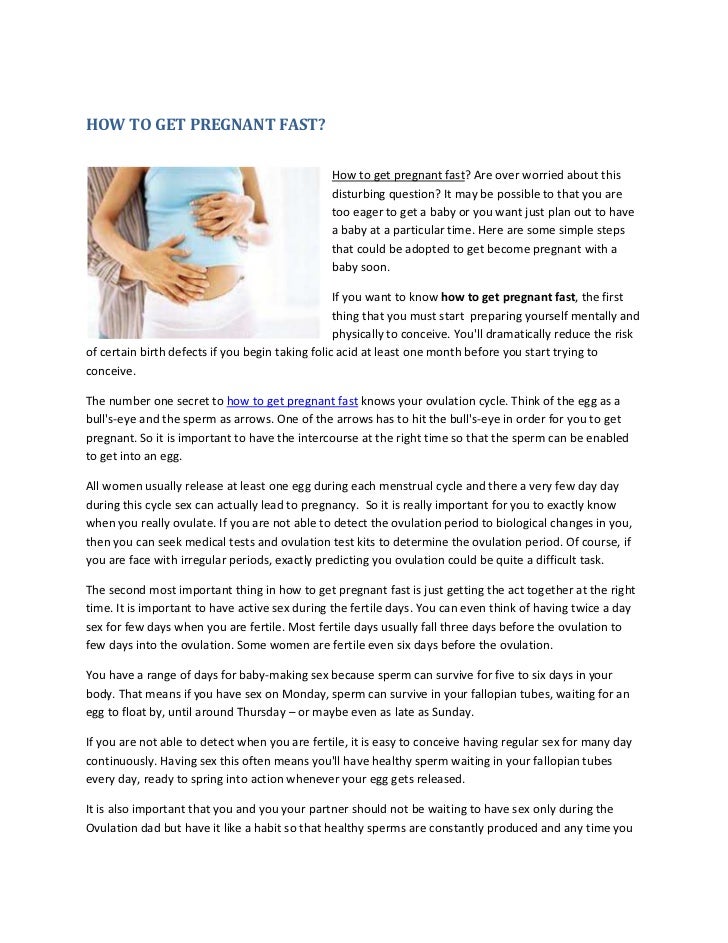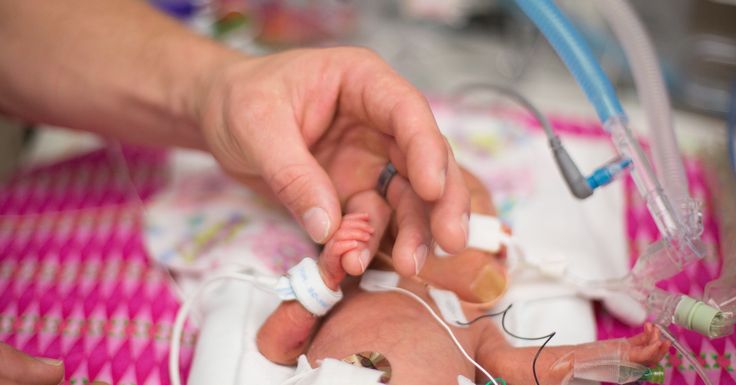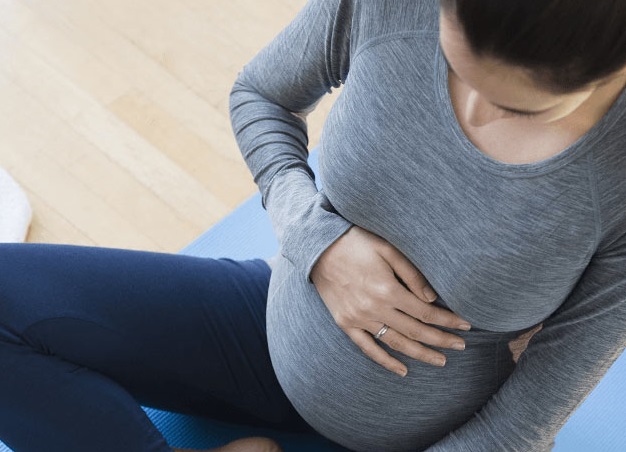Precautions when pregnant
Pregnancy Precautions: FAQs (for Parents)
Almost as soon as you see that little line on the home pregnancy test, the worry seems to set in. You start thinking about the two cups of coffee you had at work yesterday, the glass of wine you sipped at dinner last week, the tuna steak you devoured for lunch 2 weeks ago.
No doubt about it, pregnancy can be one of the most thrilling and most worrisome times in a woman's life. Of course, when you're pregnant, what you don't put into your body (or expose it to) can be almost as important as what you do.
But worrying out about every little thing you come into contact with can make for a long and stressful three trimesters. And fretting about things you did before you knew you were pregnant or before you found out they could be hazardous won't do you or your baby any good.
Questions abound regarding what women can and can't do during pregnancy. But the answers may not always come from the most reliable sources, so you might worry unnecessarily. Some warnings are worth listening to; others are popular but unproven rumors.
Knowing what could truly be harmful to your baby and what's not a real concern is the key to keeping your sanity during these 40 weeks.
The Top Pregnancy Hazards
You'll need to be particularly mindful of a handful of things during your pregnancy, some of which are more harmful than others. Your doctor (or other health care provider) will talk to you about what should be completely avoided, what should be greatly reduced, and what should be carefully considered during pregnancy.
Alcohol
Should I avoid it? Yes! Although it may seem harmless to have a glass of wine at dinner or a mug of beer out with friends, no one knows what's a "safe amount" of alcohol to drink during pregnancy. Fetal alcohol syndrome (FAS) is caused by drinking a lot of alcohol during pregnancy. What that amount is versus a safe amount is really not known. Because of the uncertainty, it's always wise to be cautious and not drink any alcohol at all during pregnancy.
What are the risks to my baby? Alcohol is one of the most common causes of physical, behavioral, and intellectual disabilities. It can be even more harmful to a developing fetus than heroin, cocaine, or marijuana use.
Alcohol is easily passed along to the baby, whose body is less able to get rid of alcohol than the mother's. That means an unborn baby tends to develop a high concentration of alcohol, which stays in the baby's system for longer periods than it would in the mother's. And moderate alcohol intake, as well as periodic binge drinking, can possibly damage a baby's developing nervous system.
What can I do about it? If you had a drink or two before you even knew you were pregnant (as many women do), don't worry too much about it. But your best bet is to not drink any more alcohol for the rest of your pregnancy.
If you're an alcoholic or think you may have a drinking problem, talk to your doctor about it. He or she needs to know how much alcohol you've consumed and when during your pregnancy to get a better idea of how your unborn baby might be affected.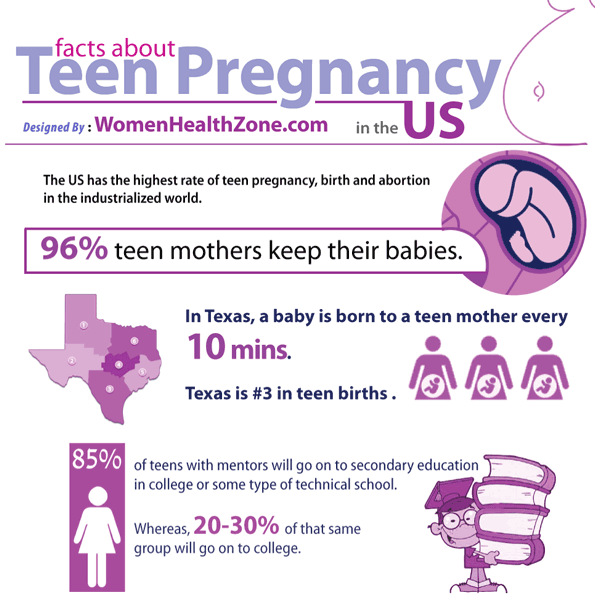 Your doctor also can start you on a path to getting the help you need to stop drinking — for your sake and your baby's.
Your doctor also can start you on a path to getting the help you need to stop drinking — for your sake and your baby's.
P
Caffeine
Should I avoid and/or limit it? Yes. It's wise to cut down or stop caffeine intake. Studies show that caffeine consumption of more than 200–300 milligrams a day (about 2–3 cups of coffee, depending on the portion size, brewing method, and brand) might put a pregnancy at risk. Less than that amount is probably safe.
What are the risks to my baby? High caffeine consumption has been linked to an increased risk of miscarriage and, possibly, other pregnancy complications.
What can I do about it? If you're having a hard time cutting out coffee all at once, here's how you can start:
- Cut your consumption down to one or two cups a day.
- Gradually reduce the amount by combining decaffeinated coffee with regular coffee.
- Eventually cut out the regular coffee altogether.

And remember that caffeine is not only in coffee. Green and black tea, cola, and other soft drinks contain caffeine. Try switching to decaffeinated products (which may still have some caffeine, but in much smaller amounts) or caffeine-free alternatives.
If you're wondering about chocolate, which also has caffeine, the good news is that you can eat some in moderation. A cup of brewed coffee has 95–135 milligrams of caffeine, but the average chocolate bar has 5–30 milligrams. So, small amounts of chocolate are fine.
Certain Foods
Are there some I should avoid? Yes. Foods that are more likely to be contaminated with bacteria or heavy metals are ones to try to avoid or limit your exposure to. Those you should steer clear of during pregnancy include:
- soft, unpasteurized cheeses (often advertised as "fresh") such as feta, goat, Brie, Camembert, blue-veined cheeses, and Mexican queso fresco
- unpasteurized milk, juices, and apple cider
- raw eggs or foods containing raw eggs, including mousse, tiramisu, raw cookie dough, eggnog, homemade ice cream, and Caesar dressing
- raw or undercooked fish (sushi), shellfish, or meats
- paté and meat spreads
- processed meats like hot dogs and deli meats (these should be very well cooked before eating)
Also, although fish and shellfish can be an extremely healthy part of your pregnancy diet (they contain beneficial omega-3 fatty acids and are high in protein and low in saturated fat), you should avoid eating certain kinds due to high levels of mercury, which can damage the brain of a developing fetus.
Fish to avoid:
- shark
- swordfish
- king mackerel
- tilefish
- tuna steak (limited amounts of canned, preferably light, tuna is OK)
What are the risks to my baby? Although it's important to eat plenty of healthy foods during pregnancy, you also need to avoid foodborne illnesses, such as listeriosis, toxoplasmosis, and salmonella, which are caused by the bacteria that can be found in certain foods. These infections can be life-threatening to an unborn baby and may cause birth defects or miscarriage.
What can I do about it? Be sure to thoroughly wash all fruits and vegetables, which can carry bacteria or be coated with pesticide residue. And be mindful of what you're buying at the grocery store or when dining out.
When you choose seafood, eat a variety of fish and shellfish and limit the amount to about 12 ounces per week — that's about two meals. Common fish and shellfish that are low in mercury include: canned light tuna, catfish, pollock, salmon, and shrimp. But because albacore (or white) tuna has more mercury than canned light tuna, it's best to eat no more than 6 ounces (or one meal) of albacore tuna a week.
But because albacore (or white) tuna has more mercury than canned light tuna, it's best to eat no more than 6 ounces (or one meal) of albacore tuna a week.
You may have to skip a few foods during pregnancy that you normally enjoy. But just think how delicious they'll taste when you can have them again!
P
Changing the Litter Box
Should I avoid it? Yes. Pregnancy is the prime time to get out of cleaning kitty's litter box. But that doesn't mean that you have to keep away from Fluffy!
What are the risks to my baby? An infection called toxoplasmosis can be spread through soiled cat litter boxes and can cause serious problems in a fetus, including prematurity, poor growth, and severe eye and brain damage. A pregnant woman who becomes infected often has no symptoms but can still pass the infection on to her developing baby.
What can I do about it? Have someone else change the litter box, making sure to clean it thoroughly and regularly, then wash his or her hands well afterward.
OTC and Prescription Medicines
Should I avoid them? Some, yes; others, no. There are many medicines you should not use during pregnancy. Be sure to talk to your doctor about which prescription and over-the-counter (OTC) drugs you can and can't take, even if they seem like no big deal.
What are the risks to my baby? Even common OTC medicines that you can buy in stores without a prescription may be off-limits during pregnancy because of their potential effects on the baby. Certain prescription medicines may also harm the developing fetus. (The type of harm and extent of possible damage depends on the kind of medication.)
Also, although they may seem harmless, herbal remedies and supplements are not regulated by the U.S. Food and Drug Administration (FDA). That means that they don't have to follow any safety standards and thus could be harmful to your baby.
What can I do about it? To make sure you don't take anything that could put your baby at risk, talk to your doctor about:
- any medicines you're taking — prescription and OTC — and ask which are safe to take during pregnancy
- any concerns you have about natural remedies, supplements, and vitamins
Also, let all of your health care providers know that you're pregnant so that they'll keep that in mind when recommending or prescribing any medicines.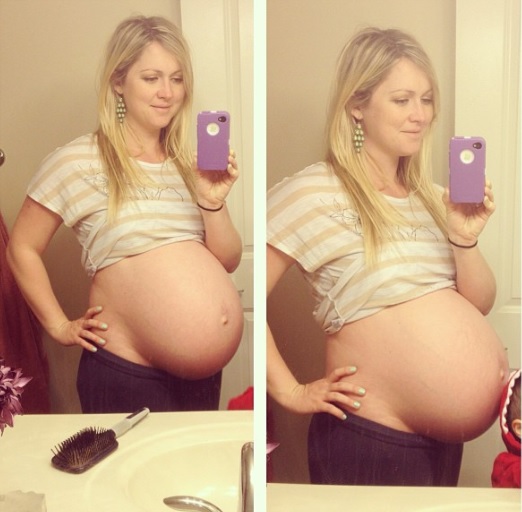 If you were prescribed a medication before you became pregnant for an illness, disease, or condition that you still have, your doctor can help you weigh the potential benefits and risks of continuing your prescription.
If you were prescribed a medication before you became pregnant for an illness, disease, or condition that you still have, your doctor can help you weigh the potential benefits and risks of continuing your prescription.
If you become sick (for example, with a cold) or have symptoms that cause you discomfort or pain (like a headache or backache), talk to your doctor about medicines you can take and other ways to help you feel better without medication.
Also, if you are in your third trimester, talk to your health care professional if you are scheduled to have surgery or a medical procedure that would require the use of general anesthesia. The FDA has issued a warning about its possible effects on an unborn baby's brain development.
P
Recreational Drugs
Should I avoid them? Yes!
What are the risks to my baby? Pregnant women who use drugs may be placing their unborn babies at risk for:
- premature birth
- poor growth
- birth defects
- behavior and learning problems
And their babies could also be born addicted to those drugs.
What can I do about it? If you've used any drugs at any time during your pregnancy, it's important to tell your doctor. Even if you've quit, your unborn child could still be at risk for health problems. If you're still using drugs, talk to your doctor for help on how to quit. Health clinics such as Planned Parenthood also can recommend health care providers, at little or no cost, who can help you quit your habit and have a healthier pregnancy.
Smoking
Should I avoid it? Yes! You wouldn't light a cigarette, put it in your baby's mouth, and encourage your little one to puff away. As ridiculous as this sounds, pregnant women who continue to smoke are allowing their fetus to smoke too. The smoking mother passes nicotine, carbon monoxide, and many other chemicals to her growing baby.
Likewise, you should avoid people who are smoking, whether they're coworkers, friends, family members, or people in public places.
What are the risks to my baby? If a pregnant woman smokes, it could cause:
- miscarriage or stillbirth
- prematurity
- low birth weight
- sudden infant death syndrome (SIDS)
- asthma and other respiratory problems
And the risks to a fetus from regular exposure to secondhand smoke include low birth weight and slowed growth.
What can I do about it? If you smoke, having a baby may be the reason you need to quit. Talk to your doctor about options for kicking the habit.
If you spend time with people who smoke, ask them nicely to do it outside — and away from you if you're outside as well.
P
Artificial Sweeteners (Sugar Substitutes)
Should I avoid them? Some are OK, others are best to avoid.
Aspartame, sucralose, stevioside, and acesulfame-K have been found to be safe to use in moderation during pregnancy. However, you should avoid aspartame if you or your partner has a rare hereditary disease called phenylketonuria (PKU), in which the body can't break down the compound phenylalanine, which is found in aspartame. In that case, you should avoid aspartame altogether since your baby may also be born with the disease.
Experts are still unsure about whether saccharin, which is found in some foods and in the little pink packets, is safe to use during pregnancy — it can cross the placenta and could stay in the fetus' tissue. Also, a sweetener called cyclamate is banned in the United States because of concerns about a possible link to cancer.
Also, a sweetener called cyclamate is banned in the United States because of concerns about a possible link to cancer.
What are the risks, if any, to my baby? Although some people say that the artificial sweetener aspartame is linked to birth defects and illnesses, government authorities and medical groups throughout the world have evaluated aspartame and approved it as safe for human consumption, including during pregnancy.
Research done during the 1970s suggested that saccharin caused bladder cancer in lab rats when given in large quantities. Since then, though, those studies have often been called into question. Also, a warning saying that it could cause cancer was removed from all saccharin-containing products' labels in 2000.
What can I do about it? With aspartame, sucralose, stevioside, and acesulfame-K, moderation is the key. It's OK to have an occasional diet soda or sugar-free food with these sweeteners here and there. But if you're really craving something sweet, it's probably better to have the real thing, as long as it's in moderation.
If you've already had something with saccharin in it during your pregnancy, don't obsess about it. It's highly unlikely that small amounts could harm your baby.
Still, it's wise to check product labels and try to avoid — or at least limit — anything with artificial sweeteners (especially saccharin), just to be safe. After all, this is one time in your life when you have a good reason to avoid diet foods! And the more naturally flavored whole foods you eat during pregnancy, the better.
Flying
Should I avoid it? No, not unless your due date is near or your doctor tells you that you or your baby has a medical condition that warrants keeping you near home. Women with certain health conditions — like high blood pressure (hypertension) or blood clots, a history of miscarriage, premature labor, ectopic pregnancy, or other prenatal complications — are encouraged not to fly.
Otherwise, most healthy pregnant women can fly up to 4 weeks before their due date. After that, it's best to stay close to home in case you deliver.
After that, it's best to stay close to home in case you deliver.
Note: it is recommended that pregnant women not fly to areas with high altitudes, regions with disease outbreaks, or where certain vaccines are recommended for travelers beforehand.
What are the risks, if any, to my baby? For women with healthy pregnancies, there are no significant risks. However, women who have difficult pregnancies, especially involving their cardiovascular system, could be compromised by air flight and should discuss any flying plans with their doctor.
What can I do about it? Discuss any plans for lengthy or distant travel with your doctor during your last trimester, just in case. If he or she says it's OK, check with the airlines to find out what their policies are regarding flying during pregnancy. (Most airlines will allow pregnant women to fly up until week 37.)
To make sure your flight is as comfortable as possible:
- Move your lower legs regularly and/or get out of your seat (especially during long flights) to promote blood circulation and help prevent blood clots.

- Wear support stockings to further prevent clotting in your legs.
- Keep your seatbelt on when you're seated to keep the jostling of turbulence to a minimum.
Hair Dyes
Should I avoid them? No. According to the American College of Obstetricians and Gynecologists (ACOG), because very little dye is absorbed through the skin, dying your hair is "most likely safe" during pregnancy, despite what doctors in years past may have advised. That's good news for many expectant women — coloring your hair can be a great little confidence boost when everything else going on with your body feels so out of your control.
While very few studies have closely looked at the many different kinds of hair treatments and their potential effects on a fetus, what is known shows that hair treatments are most likely safe.
What are the risks, if any, to my baby? None that are currently known.
What can I do about it? If you're concerned but want to give yourself a little lift, try having your hair highlighted.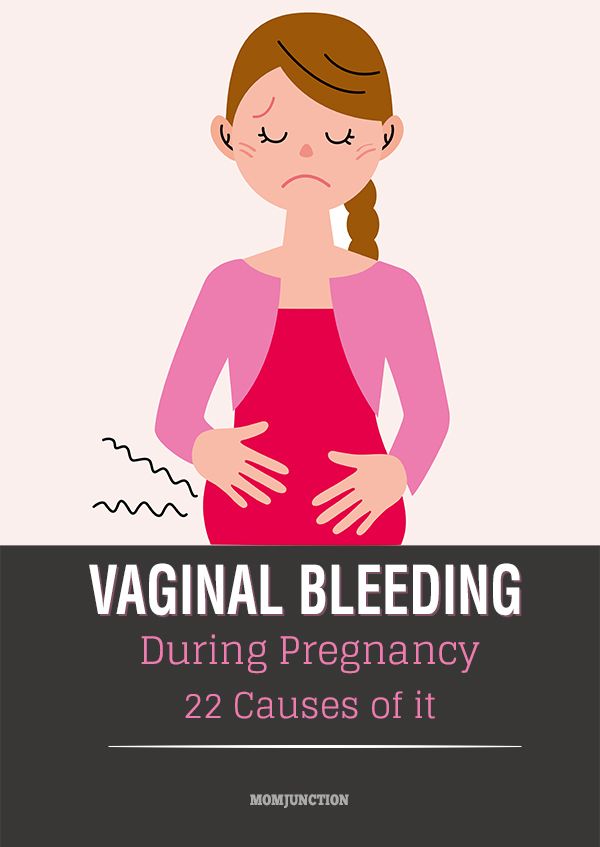 This uses far fewer chemicals than dying your entire head of hair.
This uses far fewer chemicals than dying your entire head of hair.
p
High-Impact Exercise
Should I avoid it? Yes. For most pregnant women, low-impact exercise is a great way to feel better and help prepare the body for labor. Low-impact exercise increases your heart rate and intake of oxygen while helping you avoid sudden or jarring actions that can stress your joints, bones, and muscles. Unless your doctor tells you otherwise, stick to low-impact exercise.
How much is enough? The U.S. Department of Health and Human Services recommends at least 150 minutes (that's 2 hours and 30 minutes) of moderate-intensity aerobic activity each week for healthy women who are not already highly active or used to doing vigorous-intensity activity. If you were very active or did intense aerobic activities before getting pregnant you may be able to continue your exercise routine, as long as your doctor says it's safe for you and your baby.
It's wise to avoid some exercises and activities, such as:
- weight training and heavy lifting (after the first trimester)
- sit-ups (also after the first trimester)
- contact sports
- scuba diving
- bouncing
- jarring (anything that would cause a lot of up and down movement, such as horseback riding)
- leaping
- a sudden change of direction (such as downhill skiing)
- anything with an increased risk for falling, like gymnastics
What are the risks, if any, to my baby? High-impact exercise can cause increased pressure on the structures within the uterus that could lead to problems such as premature labor or bleeding.
What can I do about it? Some of the healthy ways pregnant women can stay fit include walking, swimming, water aerobics, yoga, and Pilates. But be sure to talk to your doctor before starting — or continuing — any exercise routine during pregnancy.
P
Household Chemicals
Should I avoid them? Some, yes; others, no. While chemicals like ammonia and chlorine may make you nauseated because of the smell, they're not toxic, says the March of Dimes. But others (such as some paints, paint thinners, oven cleaners, varnish removers, air fresheners, aerosols, carpet cleaners, etc.) might be.
What are the risks, if any, to my baby? It depends on the product. Some household chemicals may have no effect, while others in high doses could be harmful.
What can I do about it? Here a few tips to help keep household chemicals use safe during your pregnancy:
- Talk to your doctor about any concerns you have with chemicals you use at home or at work.

- Look at product labels before using any product. If it's unsafe to use during pregnancy, the label should say that it's toxic. Find out not only if it's safe for you to use, but if it's safe for you to be around when being used by someone else. If the label doesn't specify, contact the manufacturer.
- Open windows and doors, and use rubber gloves and a mask when cleaning with or using any chemical.
- Wash your hands and arms, even if you wore gloves, after using any chemical.
- Opt for natural products like baking soda, borax, and vinegar for cleaning.
- Have someone else paint the baby's nursery, as much you'd probably like to do it yourself. And definitely don't help with the removal of paint if your home was built before 1978 as it may contain lead-based paint. Although many paints today are considered safer than those of the past, it's still a good idea to let someone else handle painting. You can always take over the decorating duties after the paint dries!
Bug Sprays (Insecticides, Pesticides, Repellents)
Should I avoid them? Yes. They're considered poisons, and pregnant women should stay away from them as much as possible.
They're considered poisons, and pregnant women should stay away from them as much as possible.
What are the risks, if any, to my baby? Although the occasional household use of insecticides might not be dangerous, it's best to be careful. High levels of exposure may cause:
- miscarriage
- premature delivery
- birth defects
As for insect repellents (which may contain DEET, or diethyltoluamide), the risks aren't fully known. So, it's best to either not use them at all during pregnancy or to wear gloves to place a small amount on socks, shoes, and outer clothing instead of putting repellents directly on your skin.
What can I do about it? If you have a real problem with pesky bugs around your home, the March of Dimes suggests the following:
- Use safer methods of removal such as boric acid, which you should be able to find at your local hardware store.
- Make sure someone else applies the pesticides.

- When pesticides are sprayed outside, close all windows and turn off air-conditioning units and window fans to prevent the fumes from entering your home.
- Remove utensils, food, and dishes from areas where the chemicals will be used.
- Stay away from the treated area during the application and after for the amount of time specified on the product label.
- After pesticide use indoors, have someone else wash any treated area where food is prepared or served.
- Wear rubber gloves when gardening outside where pesticides have been used.
- Have your water supply tested regularly if you have well water and use pesticides, fertilizers, or weed killers.
P
Lead
Should I avoid it? Yes. However, exposure to high lead levels is rare for women in the United States.
What are the risks, if any, to my baby? Exposure to high levels of lead can cause:
- miscarriage
- premature delivery
- low birth weight
- developmental delays
But even low levels of lead can cause subtle problems with behavior and learning in children.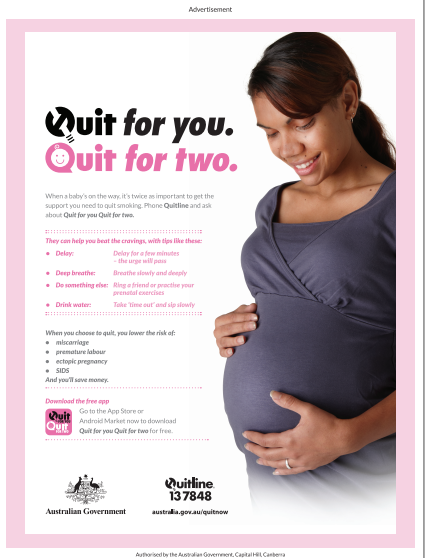
What can I do about it? If your home was built before 1978, it could have lead-based paint. But it only becomes a problem if the paint is chipping, peeling, or being removed. Some homes also may have lead pipes or copper piping with lead solder that can allow lead to enter the tap water.
If you have an older home or think that you may have lead piping or soldering and are concerned about lead exposure, you can have a professional come out to test your water, the dust in your home, the soil outside, and/or the paint around your home for lead.
Make sure that anyone who removes any potentially lead-based paint from your home:
- is a professional trained in removing lead paint (getting rid of lead-based paint isn't a project for a do-it-yourselfer!)
- removes it when you're not there
- doesn't scrape, sand, or use a heat gun to remove the paint (these methods may send lead dust into the air)
- thoroughly cleans the area immediately afterward
To help reduce potential lead levels in your tap water, you can run the water for 30 seconds before using it and/or buy a water filter that specifically says on the packaging that it removes lead.
Overheating (Hot Tubs, Saunas, Electric Blankets, etc.)
Should I avoid or limit it? Yes. You should limit activities that would raise your core temperature above 102°F (38.9°C). They include:
- using saunas or hot tubs
- taking very hot, long baths and showers
- using electric blankets or heating pads
- getting a high fever
- becoming overheated when outside in hot weather or when exercising
What are the risks, if any, to my baby? If your body temperature goes above 102°F (38.9°C) for more than 10 minutes, the elevated heat can cause problems with the fetus. Overheating in the first trimester can lead to neural tube defects and miscarriage. Later in the pregnancy, it can lead to dehydration in the mother.
What can I do about it? Instead of hot tubs or saunas, take a dip in a cool pool. And it's probably a good idea to stick to warm or slightly hot baths and showers. If you have a fever during your pregnancy, talk to your doctor about ways to lower it. And follow your body's cues that you're getting overheated when exercising or enjoying the great outdoors in the warmer months.
If you have a fever during your pregnancy, talk to your doctor about ways to lower it. And follow your body's cues that you're getting overheated when exercising or enjoying the great outdoors in the warmer months.
But if you've already become overheated during your pregnancy, don't worry too much about it. Chances are, you removed yourself from the uncomfortable situation before any damage was done.
Self-Tanners, Sunless Tanners
Should I avoid them? Maybe. Although there's no proof that self-tanners are harmful to an unborn baby, there haven't been many studies done on their effects to a fetus.
What are the risks, if any, to my baby? No risks specific to tanning have been documented.
What can I do about it? For a summer glow, skip the self-tanner and apply some bronzer to your face, neck, shoulders, and chest. And if you do decide to try a self-tanner, that's far safer than lying out in the sun and becoming potentially overheated.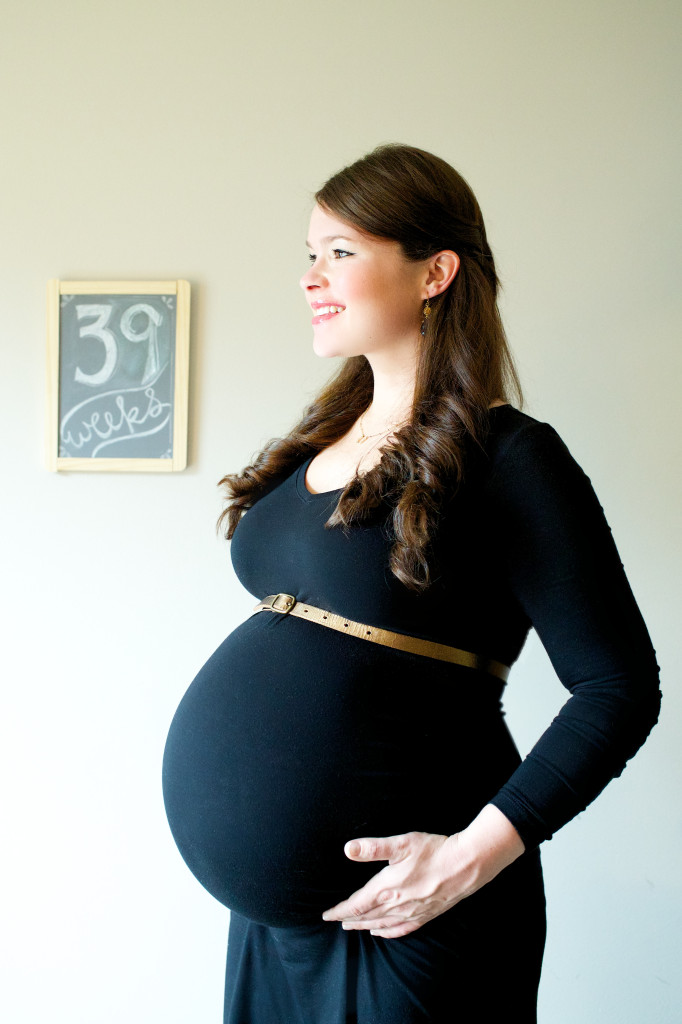 Overheating in the first trimester, as discussed above, can lead to significant problems for the baby; later in the pregnancy, it could lead to dehydration in the mother. Still, ask your doctor before applying any "tan in a bottle."
Overheating in the first trimester, as discussed above, can lead to significant problems for the baby; later in the pregnancy, it could lead to dehydration in the mother. Still, ask your doctor before applying any "tan in a bottle."
p
Sex
Should I avoid it? No. Most pregnant women having a "normal" pregnancy can continue having sex — it's perfectly safe for both mom and the baby, even up until the delivery. Of course, you'll probably need to adapt positions for your own comfort as your belly gets bigger.
Doctors may advise against sexual intercourse if they anticipate or find significant complications with a woman's pregnancy, including:
- a history or threat of miscarriage
- a history of pre-term labor (previously delivering a baby before 37 weeks) or signs indicating the risk of pre-term labor (such as premature uterine contractions)
- unexplained vaginal bleeding, discharge, or cramping
- leakage of amniotic fluid (the fluid that surrounds the baby)
- placenta previa, a condition in which the placenta (the blood-rich structure that nourishes the baby) is situated down so low that it covers the cervix (the opening of the uterus)
- incompetent cervix, a condition in which the cervix is weakened and dilates (opens) early, raising the risk for miscarriage or premature delivery
- multiple fetuses (having twins, triplets, etc.
 )
)
What are the risks, if any, to my baby? You should not have sex with a partner whose sexual history is unknown to you or who may have a sexually transmitted disease (STD), such as herpes, genital warts, chlamydia, or HIV. If you become infected, the disease may be passed to your baby, with potentially dangerous effects.
What can I do about it? Talk to your doctor about any discomfort you have during or after sex or any other concerns.
Tap Water, Drinking Water
Should I avoid it? Not necessarily. Before you go out and buy a 9-month supply of bottled water, tell your doctor where you live and whether you have public water or well water.
It's also important to note that just because water is bottled doesn't necessarily mean it's safer. Although bottled water (which is regulated by the FDA) may taste better or just different, tap water meets the same Environmental Protection Agency (EPA) standards.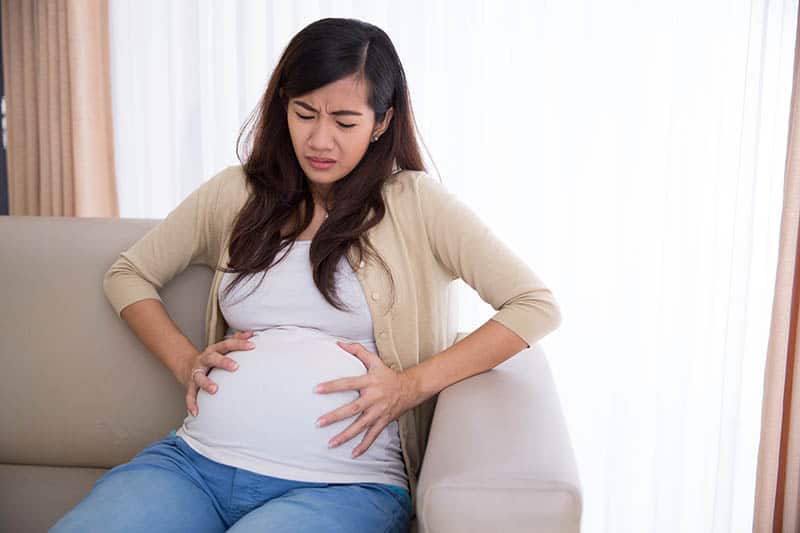
What are the risks, if any, to my baby? Different studies show different things, according to the March of Dimes. Some have found that the chlorine used to treat public water can turn into chloroform when it mixes with other materials in the water, which can increase the risk of miscarriage and poor fetal growth. But other studies have found no such links. Also of concern to some is the potential for the water to be contaminated by things like lead and pesticides. If you have well water, you should probably have it checked regularly, such as once a year, whether you're pregnant or not.
What can I do about it? If you're worried, contact your local water supplier to get a copy of the annual water quality report. If you're still concerned and/or have private well water, have your water tested by a state-certified laboratory. This can cost anywhere from $15 to hundreds of dollars, depending on the number of contaminants you want to have your water tested for.
To help ease your mind, you could also buy a water filtration system to help lower the levels of lead, some bacteria and viruses, and chemicals such as chlorine. Be sure to read the product's label, as some filters do more than others.
Countertop pitcher and faucet-mounted units are fairly inexpensive (some for under $50), whereas systems used to treat your entire home's water supply are much pricier (up to thousands of dollars). You can also have refillable water coolers delivered to your home, often through wholesale — or bulk items — stores.
p
Teeth Whiteners, Teeth Bleaching
Should I avoid them? Maybe. As with self-tanners, no good studies have been done on teeth whiteners that say for sure whether they're safe to use if you're expecting. And some makers of whitening products do caution against using them during pregnancy. Some dentists encourage waiting until after pregnancy to get your teeth whitened and others say that the procedures are safe. The concern is mostly about the chemicals used in teeth whitening products that could be swallowed and the potential effect on a fetus.
The concern is mostly about the chemicals used in teeth whitening products that could be swallowed and the potential effect on a fetus.
What are the risks, if any, to my baby? There's currently no evidence that teeth whitening can harm a fetus.
What can I do about it? Talk to your doctor before using whitening products. If you'd rather wait until after your pregnancy to try to make your teeth pearly white, simply brush regularly with whitening toothpaste, which may give a little extra kick to your smile.
Vaccinations
Should I avoid them? Many, yes; others, no. It's best to wait until after your pregnancy for most vaccines, but a few are considered safe. Your doctor may say it's OK to get a vaccine if:
- there's a good chance that you could be exposed to a particular disease or infection and the benefits of vaccinating you outweigh the potential risks
- an infection would pose a risk to you or your baby
- the vaccine is unlikely to cause harm
The flu shot fits the criteria above and is recommended by the Centers for Disease Control and Prevention (CDC) during any stage of pregnancy. Pregnant women should only get the shot made with the inactivated virus. The flu vaccine previously also came in a nasal spray (or mist) form, but it contained live strains of the virus and was never safe for moms-to-be. Currently, the nasal spray is not recommended for anyone because the CDC found that it didn't prevent cases of the flu between 2013 and 2016.
Pregnant women should only get the shot made with the inactivated virus. The flu vaccine previously also came in a nasal spray (or mist) form, but it contained live strains of the virus and was never safe for moms-to-be. Currently, the nasal spray is not recommended for anyone because the CDC found that it didn't prevent cases of the flu between 2013 and 2016.
The flu vaccine can curb flu-related problems for expectant moms, who are at higher risk of complications from the illness. And, the vaccine is safe — studies show no harmful effects to a fetus. It also helps protect a mother and her baby from getting the flu (and other viruses) in the baby's first year of life.
The Tdap vaccine (against tetanus, diphtheria, and pertussis) is now recommended for all pregnant women in the second half of each pregnancy, regardless of whether or not they had the vaccine before, or when it was last given. This new recommendation was made in response to a rise in pertussis (whooping cough) infections, which can be fatal in newborns who have not yet had their routine vaccinations.
In addition to the flu shot and Tdap vaccine, other vaccines the CDC considers safe during pregnancy, but only if truly necessary, are:
- hepatitis B
- meningitis
- rabies
What are the risks, if any, to my baby? Live-virus vaccines — those containing a live organism — aren't recommended for pregnant women because of the risk that the actual infection or disease the vaccine is meant to prevent may be passed along to the unborn baby. However, this depends on the circumstances and whether the vaccine would ultimately be safer to receive than being exposed to the actual disease. For example, the chickenpox vaccine may be safer to your unborn baby than getting the infection. So, it's important to speak to your doctor if you believe that you may have been exposed to a disease.
For the most part, though, researchers don't know what the risks of some vaccines may be to a fetus. So, it's wise to just wait to be vaccinated unless your doctor tells you otherwise.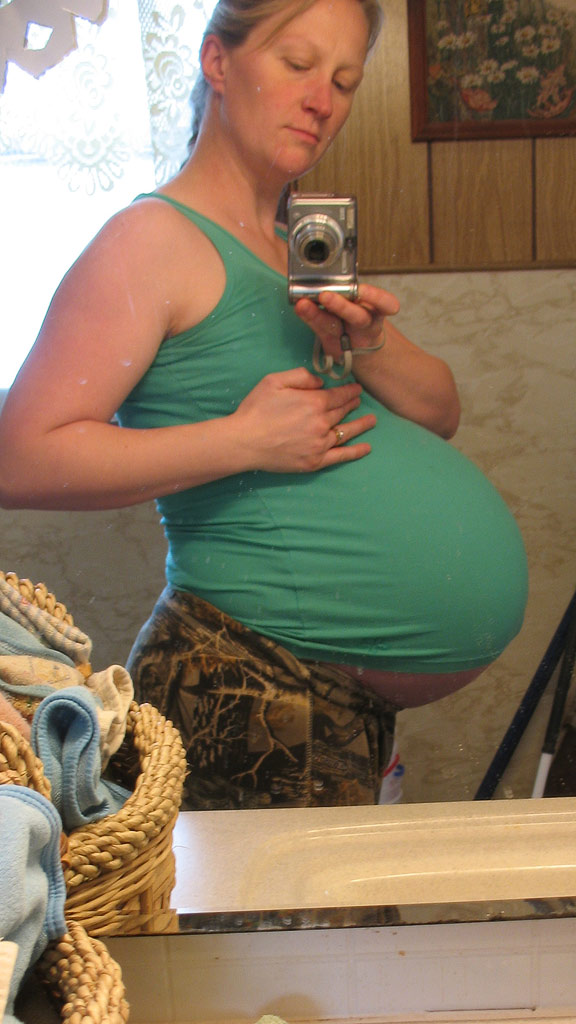
What can I do about it? Be sure to talk to your doctor before getting any vaccination during pregnancy. Also tell your doctor if you became pregnant within 4 weeks of having a vaccine. And if your workplace requires certain vaccines, be sure to let them know you're pregnant before agreeing to be immunized.
P
X-Rays
Should I avoid them? Yes and no. If your doctor thinks it's truly necessary — for your own well-being or your baby's — to get one during your pregnancy, then it's highly unlikely that low levels of X-ray radiation will be harmful. However, if you can safely wait to get an X-ray until after your baby is born, then that's probably the best way to go.
What are the risks, if any, to my baby? Health experts say that X-rays are most likely safe during pregnancy. Most diagnostic X-rays emit much less than 5 rads, which is the limit of what the FDA suggests a pregnant woman should be exposed to.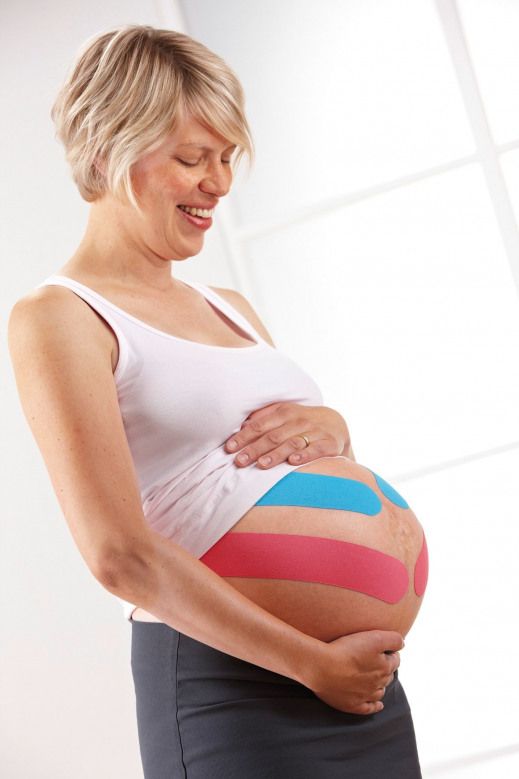
Different imaging studies use different amounts of radiation and the direction of the X-ray beam also affects the possible exposure to the fetus. Dental X-rays, for example, aren't cause for much concern because the X-ray area is far from the uterus.
What can I do about it? Researchers believe that a fetus is more at risk for damage by radiation because of the rapid rate with which its cells are dividing. Always make sure that your health care providers (including your dentist and the X-ray technician) know about your pregnancy before you get an X-ray. Also make sure that your stomach is covered with a lead apron.
If you're concerned and would rather not get an X-ray at all during pregnancy, your doctor may be able to use an MRI (magnetic resonance imaging) test during the first trimester or an ultrasound anytime.
Keeping Things in Perspective
Although some things are unsafe during pregnancy, try not to spend too much time wondering and worrying. When in doubt, just use common sense — if it seems like a bad idea, doesn't need to be done right now, or might be risky, hold off at least until you've talked with your doctor about it. He or she can likely help ease your mind and may even say it's fine to do something you never expected to be able to do until after your special delivery.
When in doubt, just use common sense — if it seems like a bad idea, doesn't need to be done right now, or might be risky, hold off at least until you've talked with your doctor about it. He or she can likely help ease your mind and may even say it's fine to do something you never expected to be able to do until after your special delivery.
Above all, make sure to follow the most important healthy pregnancy habits — eat right; get plenty of rest; steer clear of drugs, alcohol, and tobacco — and you'll be well on your way to keeping both you and your baby healthy.
Health Tips for Pregnant Women
In this section:
- Healthy Weight
- Healthy Eating
- Physical Activity
- After the Baby Is Born
Having a baby is an exciting time that often inspires women to make healthier lifestyle choices and, if needed, work toward a healthy body weight. Here you’ll find tips on how to improve your eating and physical activity habits while you’re pregnant and after your baby is born.
These tips can also be useful if you’re not pregnant but are thinking about having a baby! By making changes now, you can get used to new lifestyle habits. You’ll give your baby the best possible start on life and be a healthy example to your family for a lifetime.
Being active when you’re expecting can help you have a healthy pregnancy.Healthy Weight
Why is gaining a healthy amount of weight during pregnancy important?
Gaining an appropriate amount of weight during pregnancy helps your baby grow to a healthy size. But gaining too much or too little weight may lead to serious health problems for you and your baby.
According to experts, gaining too much weight during pregnancy raises your chances for developing gestational diabetes (diabetes during pregnancy) and high blood pressure during pregnancy. It also increases your risk for type 2 diabetes and high blood pressure later in life. If you’re overweight or have obesity when you get pregnant, your chances for health problems may be even higher.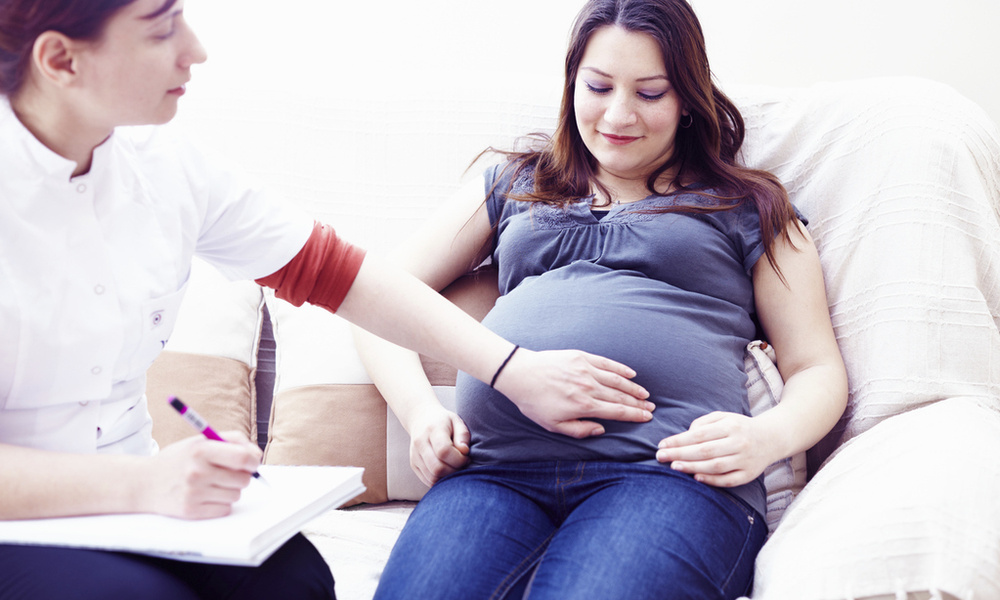 You could also be more likely to have a cesarean section (C-section).
You could also be more likely to have a cesarean section (C-section).
Gaining a healthy amount of weight helps you have an easier pregnancy and delivery. It may also help make it easier for you to get back to a healthy weight after delivery. Research shows that recommended amounts of weight gain during pregnancy can also lower the chances that you or your child will have obesity and weight-related problems later in life.
How much weight should I gain during my pregnancy?
How much weight you should gain depends on your body mass index (BMI) before pregnancy. BMI is a measure of your weight in relation to your height. You can use a formula to calculate your BMI online.
The general weight-gain advice below is for women having only one baby.
| If you1 | You should gain about |
|---|---|
| Are underweight (BMI less than 18.5) | 28 to 40 pounds |
Are at a healthy weight (BMI of 18. 5 to 24.9) 5 to 24.9) | 25 to 35 pounds |
| Are overweight (BMI of 25 to 29.9) | 15 to 25 pounds |
| Have obesity (BMI of 30+) | 11 to 20 pounds |
It’s important to gain weight very slowly. The old myth that you’re “eating for two” is not true. During the first 3 months, your baby is only the size of a walnut and doesn’t need many extra calories. The following rate of weight gain is advised
- 1 to 4 pounds total in the first 3 months
- 2 to 4 pounds each month from 4 months until delivery
Talk to your health care professional about how much weight gain is appropriate for you. Work with him or her to set goals for your weight gain. Take into account your age, weight, and health. Track your weight at home or when you visit your health care professional.
Don’t try to lose weight if you’re pregnant. Your baby needs to be exposed to healthy foods and low-calorie beverages (particularly water) to grow properly. Some women may lose a small amount of weight at the start of pregnancy. Speak to your health care professional if this happens to you.
Some women may lose a small amount of weight at the start of pregnancy. Speak to your health care professional if this happens to you.
Healthy Eating
How much should I eat and drink?
Consuming healthy foods and low-calorie beverages, particularly water, and the appropriate number of calories may help you and your baby gain the proper amount of weight.
How much food and how many calories you need depends on things such as your weight before pregnancy, your age, and how quickly you gain weight. If you’re at a healthy weight, the Centers for Disease Control and Prevention (CDC) says you need no extra calories in your first trimester, about 340 extra calories a day in your second trimester, and about 450 extra calories a day in your third trimester.1 You also may not need extra calories during the final weeks of pregnancy.
Check with your health care professional about your weight gain. If you’re not gaining the weight you need, he or she may advise you to take in more calories. If you’re gaining too much weight, you may need to cut down on calories. Each woman’s needs are different. Your needs also depend on whether you were underweight, overweight, or had obesity before you became pregnant, or if you’re having more than one baby.
If you’re gaining too much weight, you may need to cut down on calories. Each woman’s needs are different. Your needs also depend on whether you were underweight, overweight, or had obesity before you became pregnant, or if you’re having more than one baby.
What kinds of foods and beverages should I consume?
A healthy eating plan for pregnancy includes nutrient-rich foods and beverages. The Dietary Guidelines for Americans, 2020–2025 recommend these foods and beverages each day
- fruits and vegetables (provide vitamins and fiber)
- whole grains, such as oatmeal, whole-grain bread, and brown rice (provide fiber, B vitamins, and other needed nutrients)
- fat-free or low-fat milk and milk products or nondairy soy, almond, rice, or other drinks with added calcium and vitamin D
- protein from healthy sources, such as beans and peas, eggs, lean meats, seafood that is low in mercury (up to 12 ounces per week), and unsalted nuts and seeds, if you can tolerate them and aren’t allergic to them.

A healthy eating plan also limits salt, solid fats (such as butter, lard, and shortening), and sugar-sweetened drinks and foods.
Fruit, colorful vegetables, beans, fish, and low-fat dairy are rich sources of nutrients needed during pregnancy.Does your eating plan measure up? How can you improve your habits? Try consuming fruit like berries or a banana with hot or cold cereal for breakfast; a salad with beans or tofu or other non-meat protein for lunch; and a lean serving of meat, chicken, turkey, or fish and steamed vegetables for dinner. Think about new, healthful foods and beverages you can try. Write down your ideas and share them with your health care professional.
For more about healthy eating, see the MyPlate Daily Checklist. It can help you make an eating plan for each trimester (3 months) of your pregnancy.
A meal of steamed veggies and grilled chicken breast contains nutrients without too many calories.What if I’m a vegetarian?
A vegetarian eating plan during pregnancy can be healthy.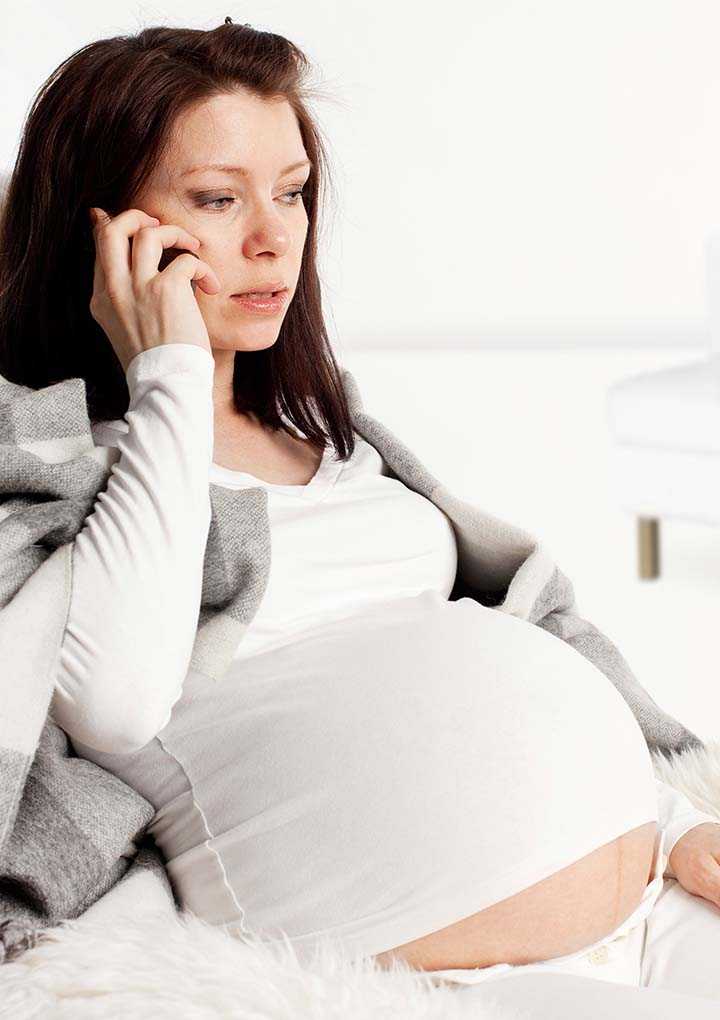 Consider the quality of your eating plan and talk to your health care professional to make sure you’re getting enough calcium, iron, protein, vitamin B12, vitamin D, and other needed nutrients. Your health care professional may also tell you to take vitamins and minerals that will help you meet your needs.
Consider the quality of your eating plan and talk to your health care professional to make sure you’re getting enough calcium, iron, protein, vitamin B12, vitamin D, and other needed nutrients. Your health care professional may also tell you to take vitamins and minerals that will help you meet your needs.
Do I have any special nutrition needs now that I’m pregnant?
Yes. During pregnancy, you need more vitamins and minerals such as folate, iron, and calcium.
Getting the appropriate amount of folate is very important. Folate, a B vitamin also known as folic acid, may help prevent birth defects. Before pregnancy, you need 400 mcg per day from supplements or fortified foods, in addition to the folate you get naturally from foods and beverages. During pregnancy, you need 600 mcg. While breastfeeding, you need 500 mcg of folate per day.2 Foods high in folate include orange juice, strawberries, spinach, broccoli, beans, fortified breads, and fortified low-sugar breakfast cereals.![]() These foods may even provide 100% of the daily value of folic acid per serving.
These foods may even provide 100% of the daily value of folic acid per serving.
Most health care professionals tell women who are pregnant to take a prenatal vitamin every day and consume healthy foods, snacks, and beverages. Ask your doctor about what you should take.
What other new habits may help my weight gain?
Pregnancy can create some new food, beverage, and eating concerns. Meet the needs of your body and be more comfortable with these tips. Check with your health care professional with any concerns.
- Eat breakfast every day. If you feel sick to your stomach in the morning, try dry whole-wheat toast or whole-grain crackers when you first wake up. Eat them even before you get out of bed. Eat the rest of your breakfast (fruit, oatmeal, hot or cold cereal, or other foods) later in the morning.
- Eat high-fiber foods. Eating high-fiber foods, drinking water, and getting daily physical activity may help prevent constipation.
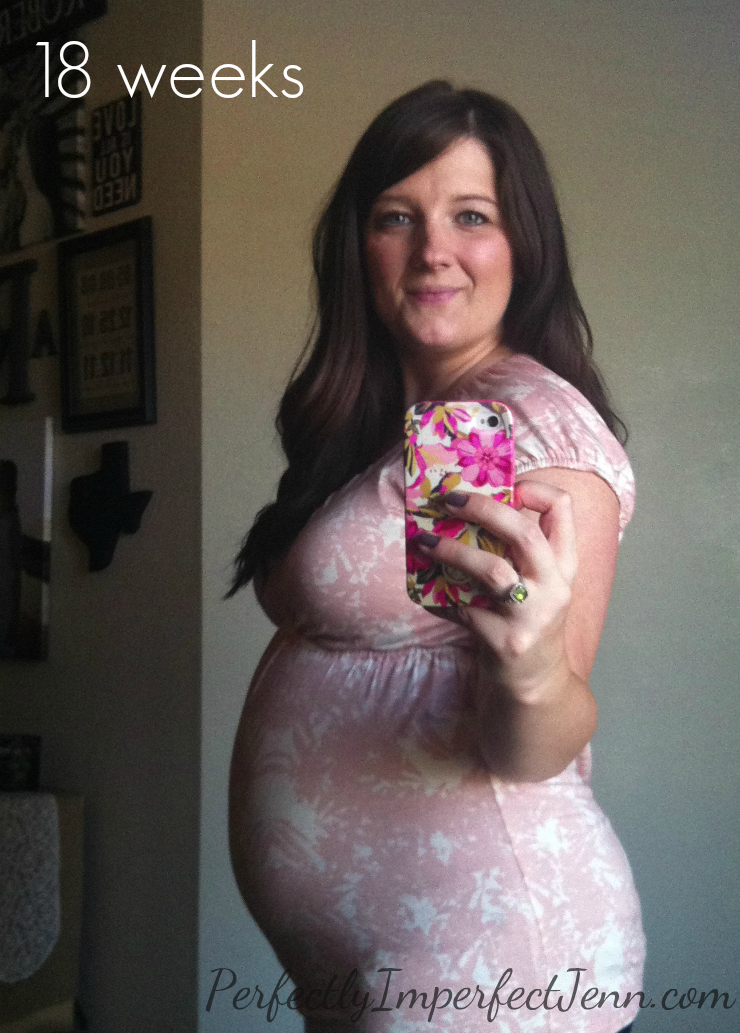 Try to eat whole-grain cereals, brown rice, vegetables, fruits, and beans.
Try to eat whole-grain cereals, brown rice, vegetables, fruits, and beans. - If you have heartburn, eat small meals spread throughout the day. Try to eat slowly and avoid spicy and fatty foods (such as hot peppers or fried chicken). Have drinks between meals instead of with meals. Don’t lie down soon after eating.
What foods and drinks should I avoid?
Certain foods and drinks can harm your baby if you have them while you’re pregnant. Here’s a list of items you should avoid.
- Alcohol. Do not drink alcohol, such as wine, beer, or hard liquor.
- Caffeine. Enjoy decaf coffee or tea, drinks not sweetened with sugar, or water with a dash of juice. Avoid diet drinks, and limit drinks with caffeine to less than 200 mg per day—the amount in about 12 ounces of coffee.3
- Fish that may have high levels of mercury (a substance that can build up in fish and harm an unborn baby).
 Limit white (albacore) tuna to 6 ounces per week. Do not eat king mackerel, marlin, orange roughy, shark, swordfish, or tilefish. To get the helpful nutrients in fish and shellfish, you may eat up to 12 ounces of seafood per week, choosing from many safe seafood choices (PDF, 387.44 KB) , such as cod, salmon, and shrimp.3
Limit white (albacore) tuna to 6 ounces per week. Do not eat king mackerel, marlin, orange roughy, shark, swordfish, or tilefish. To get the helpful nutrients in fish and shellfish, you may eat up to 12 ounces of seafood per week, choosing from many safe seafood choices (PDF, 387.44 KB) , such as cod, salmon, and shrimp.3 - Foods that may cause illness in you or your baby (from viruses, parasites, or bacteria such as Listeria or E. coli). Avoid soft cheeses made from unpasteurized or raw milk; raw cookie dough; undercooked meats, eggs, and seafood; and deli salads. Take care in choosing and preparing lunch meats, egg dishes, and meat spreads. See more food safety guidelines during pregnancy.
- Anything that is not food. Some pregnant women may crave something that is not food, such as laundry starch, clay, ashes, or paint chips. This may mean that you’re not getting the right amount of a nutrient.
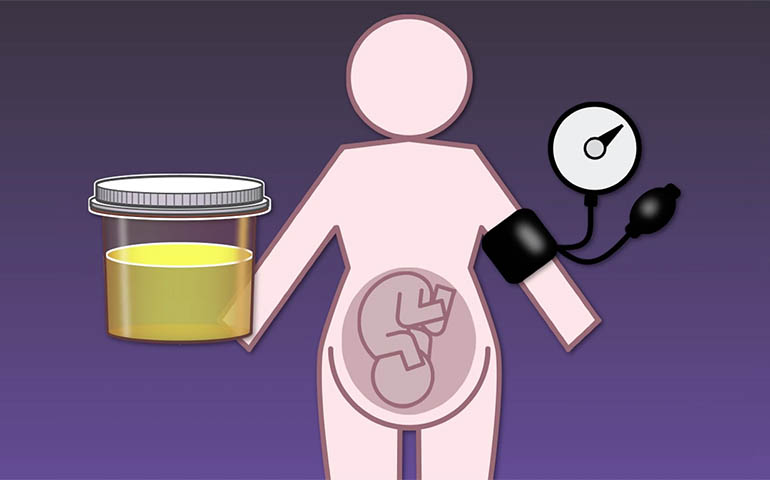 Talk to your health care professional if you crave something that isn’t food. He or she can help you get the right amount of nutrients.
Talk to your health care professional if you crave something that isn’t food. He or she can help you get the right amount of nutrients.
Physical Activity
Should I be physically active during my pregnancy?
Almost all women can and should be physically active during pregnancy. According to current physical activity guidelines (PDF, 14.4 MB) , regular physical activity may
- help you and your baby gain the appropriate amounts of weight
- reduce backaches, leg cramps, and bloating
- reduce your risk for gestational diabetes (diabetes during pregnancy)
- reduce your risk for postpartum depression
There's also some evidence that physical activity may reduce the risk of problems during pregnancy such as preeclampsia (high blood pressure during pregnancy), reduce the length of labor and postpartum recovery, and reduce the risk of having a cesarean section (or C-section).
If you were physically active before you became pregnant, you may not need to change your exercise habits. Talk with your health care professional about how to change your workouts during pregnancy.
Talk with your health care professional about how to change your workouts during pregnancy.
Being physically active can be hard if you don’t have childcare for your other children, haven’t exercised before, or don’t know what to do. Keep reading for tips about how you can work around these hurdles and be physically active.
Almost all women can and should be physically active during pregnancy.How much and what type of physical activity do I need?
According to current guidelines (PDF, 14.4 MB) , most women need the same amount of physical activity as they did before becoming pregnant. Aim for at least 150 minutes a week of moderate-intensity aerobic activity. Aerobic activities—also called endurance or cardio activities—use large muscle groups (back, chest, and legs) to increase your heart rate and breathing. Brisk walking is a form of aerobic activity.
How can you tell if you’re doing moderate-intensity aerobic activity? Take the “talk test” to find out. If you’re breathing hard but can still have a conversation easily—but you can’t sing—that’s moderate intensity.
If you’re breathing hard but can still have a conversation easily—but you can’t sing—that’s moderate intensity.
If you can only say a few words before pausing for a breath, that’s called vigorous-intensity activity. If you were in the habit of doing vigorous-intensity aerobic activity or were physically active before your pregnancy, then it’s likely okay for you to continue these activities during your pregnancy.
You can talk to your health care professional about whether to or how to adjust your physical activity while you’re pregnant. If you have health issues such as obesity, high blood pressure, diabetes, or anemia (too few healthy red blood cells), ask your health care professional about a level of activity that’s safe for you and your unborn baby.
How can I stay active while pregnant?
Even if you haven’t been active before, you can be active during your pregnancy. Here are some tips.
- Go for a walk where you live, in a local park, or in a shopping mall with a family member or friend.
 If you already have children, take them with you and make it a family outing.
If you already have children, take them with you and make it a family outing. - Get up and move around at least once an hour if you sit most of the day. When watching TV or sitting at your computer, get up and move around. Even a simple activity like walking in place can help.
- Make a plan to be active while pregnant. List the activities you’d like to do, such as walking or taking a prenatal yoga class. Think of the days and times you could do each activity on your list, such as first thing in the morning, during your lunch break from work, after dinner, or on Saturday afternoon. Look at your calendar or phone or other device to find the days and times that work best and commit to those plans.
How can I stay safe while being active?
For your health and safety, and for your baby’s, you should not do certain physical activities while pregnant. Some of these are listed below. Talk to your health care professional about other physical activities you should not do.
Safety do’s and don’ts
Follow these safety tips while being active.
| Do… | Don’t… |
|---|---|
| Choose moderate activities that aren’t likely to hurt you, such as walking or water or chair aerobics. | Don’t engage in sports where you could fall or injure your abdomen, such as soccer or basketball. |
| Drink fluids before, during, and after being physically active. Don’t overdo it. | Avoid brisk exercise outside during very hot weather. |
| Wear comfortable clothing that fits well and supports and protects your breasts. | Don’t use steam rooms, hot tubs, and saunas. |
| Stop exercising if you feel dizzy, short of breath, tired, or sick to your stomach. | Avoid exercises that call for you to lie flat on your back after week 12 in your pregnancy. |
After the Baby Is Born
How can I stay healthy after my baby is born?
After you deliver your baby, your health may be better if you try to return to a healthy weight slowly. Not losing your “baby weight” may lead to overweight or obesity later in life. Slowly returning to a healthy weight may lower your chances of diabetes, heart disease, and other weight-related problems.
Healthy eating, regular physical activity, adequate sleep, and other healthy habits after your baby is born may help you return to a healthy weight and give you energy.
After your baby is born
- Consume foods and beverages to meet your calorie needs.
- Regular physical activity will continue to benefit your overall health. Moderate-intensity physical activity will increase your fitness and can improve your mood.
Also, physical activity does not appear to have bad effects on how much breast milk is produced, what the breast milk contains, or how much the baby grows.
How may breastfeeding help?
Breastfeeding may or may not make it easier for you to lose weight because your body uses extra calories to produce milk. Even if breastfeeding does not help you lose weight, it’s linked to many other benefits for mother and child.
For mothers who breastfeed, experts advise feeding their babies only breast milk for the first 6 months—no other foods or drinks during this time. Experts suggest that those women continue breastfeeding at least until their baby reaches 12 months.
Calorie needs when you’re breastfeeding depend on how much body fat you have and how active you are. Talk with your health care professional about your calorie needs while you are breastfeeding.
Benefits of breastfeeding. Breastfeeding your baby
- likely gives him or her an appropriate mix of vitamins, minerals, and other important nutrients in a liquid (breast milk) that is easy to digest
- helps boost his or her immune system
- helps protect your baby from common problems, like ear infections and diarrhea

What else may help?
Pregnancy and the time after you deliver your baby can be wonderful, exciting, emotional, stressful, and tiring—all at once. These feelings may cause you to overeat, not get enough calories, or lose your drive and energy. Being good to yourself may help you cope with your feelings and follow healthy lifestyle habits.
Here are some ideas that may help.
- Sleep when the baby sleeps.
- Ask someone you trust to watch your baby while you nap, bathe, read, go for a walk, or go grocery shopping.
- Explore groups that you and your newborn can join, such as “new moms” groups.
- Don’t feel like you need to do it all on your own. Seek help from friends, family members, or local support groups.
Summary of Tips for Pregnancy
- Talk to your health care professional about how much weight you should gain during your pregnancy, and regularly track your progress.
- Consume foods and beverages rich in folate, iron, calcium, and protein.
 Talk with your health care professional about prenatal supplements (vitamins you may take while pregnant).
Talk with your health care professional about prenatal supplements (vitamins you may take while pregnant). - Eat breakfast every day.
- Eat foods high in fiber, and drink fluids (particularly water) to avoid constipation.
- Avoid alcohol, raw or undercooked fish, fish high in mercury, undercooked meat and poultry, and soft cheeses.
- Do moderate-intensity aerobic activity at least 150 minutes a week during your pregnancy. If you have health issues, talk to your health care professional before you begin.
- After pregnancy, slowly get back to your routine of regular, moderate-intensity physical activity.
- Gradually return to a healthy weight.
References
Precautions during Pregnancy
Colour: C C C C
Font size: A A A
Images:
Regular site version
-
03/07/2017
Number of views: 1137
Pregnancy is a stage when a woman needs to rethink some values and perhaps change something in her daily routine.
 Of course, while a woman is not pregnant, she does not think that some of her favorite activities can be dangerous for the child. Here are the most common problems:
Of course, while a woman is not pregnant, she does not think that some of her favorite activities can be dangerous for the child. Here are the most common problems:
Hot tubs
Your child "relies" on you to some extent to control and regulate body temperature. Studies have shown that prolonged elevated temperatures can cause serious harm to a developing fetus. Try to reduce the number of hot baths, spa treatments you take, and avoid saunas and baths, at least during pregnancy.
Sunbathing, tanning and solarium
Researchers argue that any kind of sunburn is not the most positive effect on the development of the fetus. But until clinical trials have been conducted on which of the varieties of sunburn most negatively affects the baby, try to exclude both the solarium and lying on the beach.
Extreme sports
During pregnancy, it is strongly advised to avoid any kind of extreme sports:
Diving
Water skis
Surfing
Riding
Skis
Any other risky sportThe most suitable sports during pregnancy are walking and swimming.

But even engaging in such physical activity, do not forget about precautions.
Flushing during pregnancy
Most doctors agree that flushing the body can be dangerous during pregnancy.
Flushing can cause infection or bleeding, and in some cases even rupture the membranes and cause water to break. You can also face more serious problems, such as an air embolism. Air embolism occurs when a large amount of air enters the bloodstream through pressure from flushing. And although the case is quite rare, but, nevertheless, it can become a serious problem.Electrolysis and waxing
It is not yet possible to say with 100% certainty how dangerous electrolysis is during pregnancy. Of course, it is better to refrain from cosmetic sessions associated with exposure to current, although removing excess hair from the face will not harm the child in any way.
Leg waxing is also not likely to have any harmful effects on the fetus.
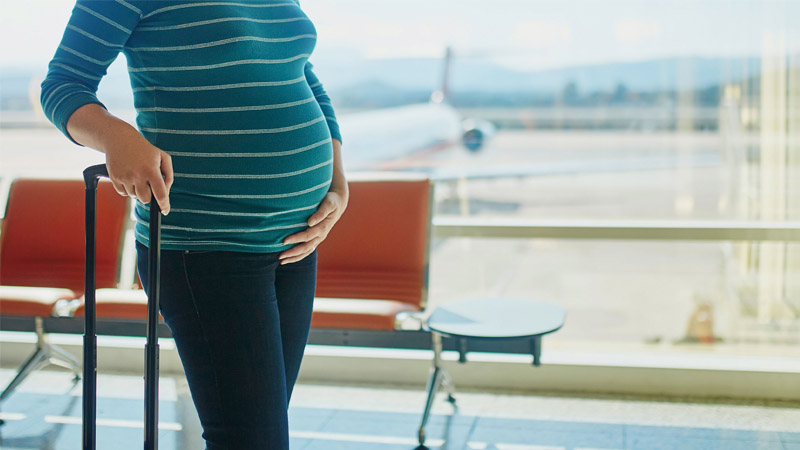 The only caveat: be careful not to overheat during the session. The application of hot wax must not cause the body temperature to rise above 102F (39C) for more than 15 minutes.
The only caveat: be careful not to overheat during the session. The application of hot wax must not cause the body temperature to rise above 102F (39C) for more than 15 minutes.
Tattoo removal
Many tattoos are removed by laser, so it is best not to get irradiated or go for such a procedure. Try to get rid of the tattoo before you get pregnant or wait until the baby is born.
Spa sessions
Avoid spa treatments during pregnancy, as steam and overheating have been clinically proven to harm the baby. Of all the spa treatments, wrapping in hot towels soaked in herbs is especially dangerous, as the body overheats, and the same temperature is transferred to the baby.
Electric mattresses and blankets
At this time, doctors have not yet proven that electric blankets harm the fetus and mother, but since this warm “pleasure” still involves the passage of microcurrents through tissue, it is better to abandon electric mattresses and blankets during pregnancy.
 Try some other way to keep warm - dress warmly and cover yourself with a few regular blankets.
Try some other way to keep warm - dress warmly and cover yourself with a few regular blankets. Allergy
If you suffer from allergies even during pregnancy, try to drink more water, especially during hot weather. If you are allergic to certain foods, then choose your food carefully and carefully. Also try to avoid contact with animals and cigarette smoke. It is possible that some of your anti-allergic drugs will be replaced with others, because. many of them are contraindicated for pregnant women. Check with your doctor about any medication you have been taking for your allergies. If the doctor changes the drug, strictly follow the instructions regarding the dose. In no case do not self-medicate. It is better to ask about the drug and find out how dangerous it is than to face new problems later.
Source: www.womanart.ru
I am pregnant: what nutritional precautions should I take?
Nutrition and food safety are always important, but during pregnancy and breastfeeding they are even more important.
 If you have doubts about how to keep yourself and your child healthy, if you want to know which foods are right for you and in what proportion, or which foods you should eliminate from your diet, it is very important to seek medical advice from specialized and experienced professionals. .
If you have doubts about how to keep yourself and your child healthy, if you want to know which foods are right for you and in what proportion, or which foods you should eliminate from your diet, it is very important to seek medical advice from specialized and experienced professionals. . Let's start with We are denying a statement that you have probably heard many times: during pregnancy, it is NOT necessary to eat for two.
In fact, the amount of food should not increase much, and the weight should always be controlled by a doctor.
Let's be clear: during pregnancy it is more important to think about quality than about quantity.
It is also important for your and your baby's health to pay special attention to the microbiological safety of foods, as some foods can carry very harmful bacteria and parasites, possibly causing foodborne infections and fetal abnormalities.
It is important for your safety that you not only avoid certain foods, but also follow some basic food safety rules.

- Always follow basic safety precautions
- Wash hands before and after handling raw food.
- Wash fruits and vegetables well before eating.
- If you consume prepackaged foods, do so immediately after opening and never past the expiration date.
- Freeze meat and fish before cooking and increase cooking time.
- Store cooked food in the refrigerator and reheat well before eating.
- Do not use
- Raw fish and meat: to reduce the risk of infection with listeriosis (infection caused by bacteria listeriosis ).
- Undercooked meat and raw sausages such as serrano ham, chorizo or salami: to reduce the risk of infection toxoplasmosis (an infection that can harm the fetus in non-immune women).
- Milk, cheese or other dairy products, if not from pasteurized milk: to reduce the risk of infection. Salmonella, Listeria or Echerichia Coli or Campylobacter .

- Neither alcohol nor tobacco: they are very harmful to your child's health ..
- Limit consumption
- Fish such as swordfish or tuna. Take no more than 2 times per week: To limit exposure to heavy metals and pollutants.
- Added sugar and UHT foods: to avoid excesses that could cause problems for the unborn child.
- Tea and coffee: if you drink them, make it cashless and decaffeinated.
For women: advice and guidance from a team of specialized gynecologists and nutritionists
Eating an adequate diet is essential for a successful pregnancy, promoting the proper development of your baby, and looking after your child's future health.
En Female We know that every woman is unique, as is every pregnancy.
Therefore, in order for you to have the best eating habits, we always advise you to take into account your tastes, preferences, circumstances and nutritional needs at each stage of pregnancy.

- Always follow basic safety precautions


